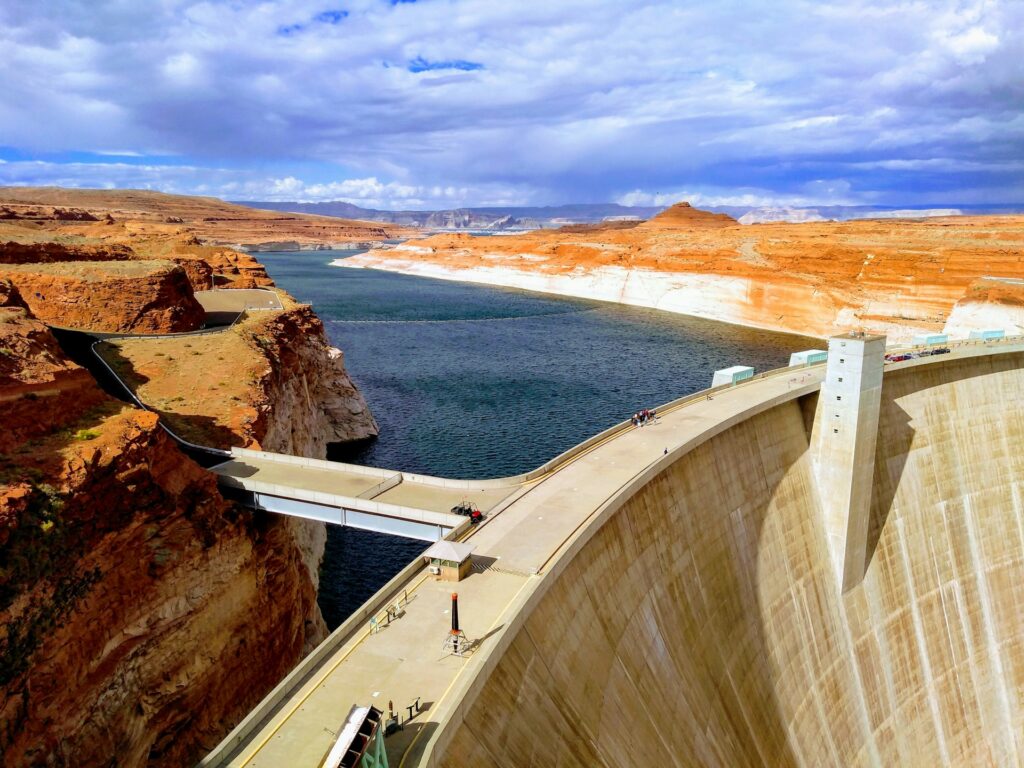
Glen Canyon Dam, Arizona. Credit: David Lusvardi/unsplash
AGU News
Register to attend the Triennial Earth-Sun Summit during the eclipse!
The Triennial Earth-Sun Summit (TESS) will be held 7-12 April in Dallas, Texas, in the path of totality. Scientific programming begins on 9 April, the day after the eclipse. To register, simply email us at [email protected]. Scientific sessions are on-site only. AGU’s housing is full. [TESS website][scientific program]
Nominate work for AGU’s journalism awards by 27 March
The deadline to nominate your own or others’ stories for the 2024 AGU Journalism Awards is 27 March at 11:59 p.m. ET. News and feature stories published in 2023 and focused on the Earth and space sciences are eligible. Email us at [email protected] with any questions. [AGU journalism awards]
Featured Research
Research roundup: Reykjanes geology and eruptive history
The coastal town of Grindavík on the peninsula of Reykjanes in Iceland faces yet another eruption, dig into some recent and foundational research on Reykjanes’ tectonic and volcanic history. [Kinematics of the Reykjanes Ridge][Variations in Volcanism and Tectonics Along the Hotspot-Influenced Reykjanes Ridge][Detailed tectonic evolution of the Reykjanes Ridge during the past 15 Ma]
Colorado River Basin historically drought-stricken; warming may amplify
The Colorado River has a long history of naturally occurring droughts, and a new study reports more dry spells than previously known over the past 2000 years. Tree-ring records of streamflow in the Upper Colorado River Basin from 1 CE onward and modern streamflow values reveal that 12 of 51 droughts over that period were worse than the 2000-2021 megadrought. Warming is likely to exacerbate the Basin’s natural wet-dry cycles. [Geophysical Research Letters research]
Green space can help mental health, but access and location matter
Green space, or areas with vegetation, can help alleviate mental health issues, but access to and quality of green space varies geographically and across the urban-rural divide. A new study of youth mental health and green space in North Carolina finds youth in (sub)urban areas would benefit most from added green space, while youth in rural areas may benefit more from increased accessibility to existing greenspace. [GeoHealth research]
Scientists track down elusive record of strongest observed solar flare
The strongest solar flare in observed history was “the Carrington event” in 1859. Strong solar flares can leave fingerprints in carbon isotopes, but scientists didn’t find the isotopic signature for the Carrington event in mid-latitude trees. A new study finally finds a carbon signature in high-latitude trees, prompting questions of why only high-latitude trees had captured this important signal. [Geophysical Research Letters research]
Where and how sea-level rise threatens coastal areas and communities
To better understand how sea-level rise threatens coastal areas, scientists propose a new indicator to estimate the risk of coastal flooding under climate change. [Eos editor’s highlight][AGU Advances research]
AGU (www.agu.org) is a global community supporting more than half a million advocates and professionals in Earth and space sciences. Through broad and inclusive partnerships, AGU aims to advance discovery and solution science that accelerate knowledge and create solutions that are ethical, unbiased and respectful of communities and their values. Our programs include serving as a scholarly publisher, convening virtual and in-person events and providing career support. We live our values in everything we do, such as our net zero energy renovated building in Washington, D.C. and our Ethics and Equity Center, which fosters a diverse and inclusive geoscience community to ensure responsible conduct.